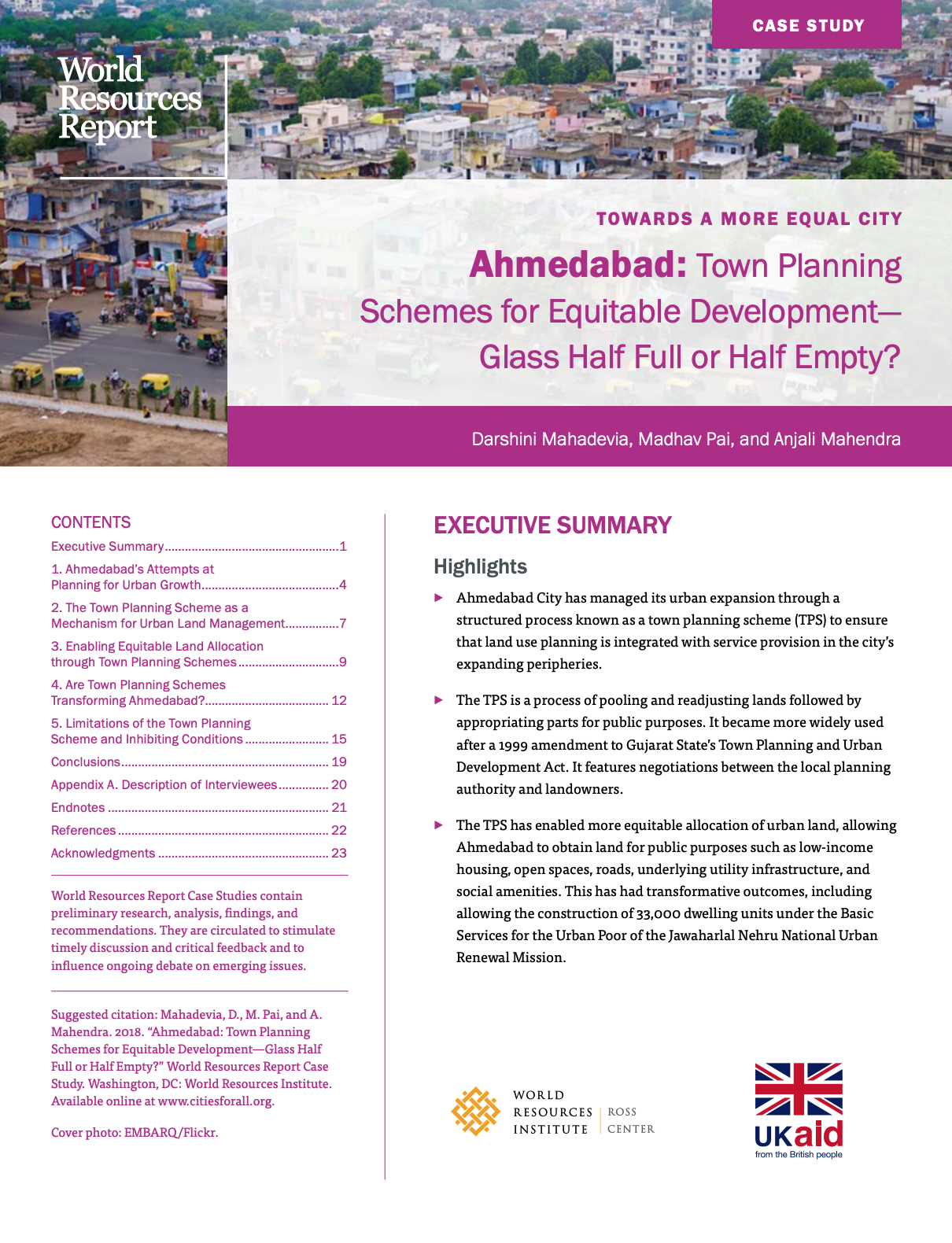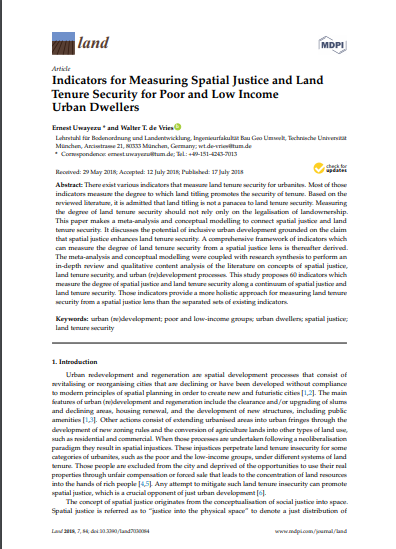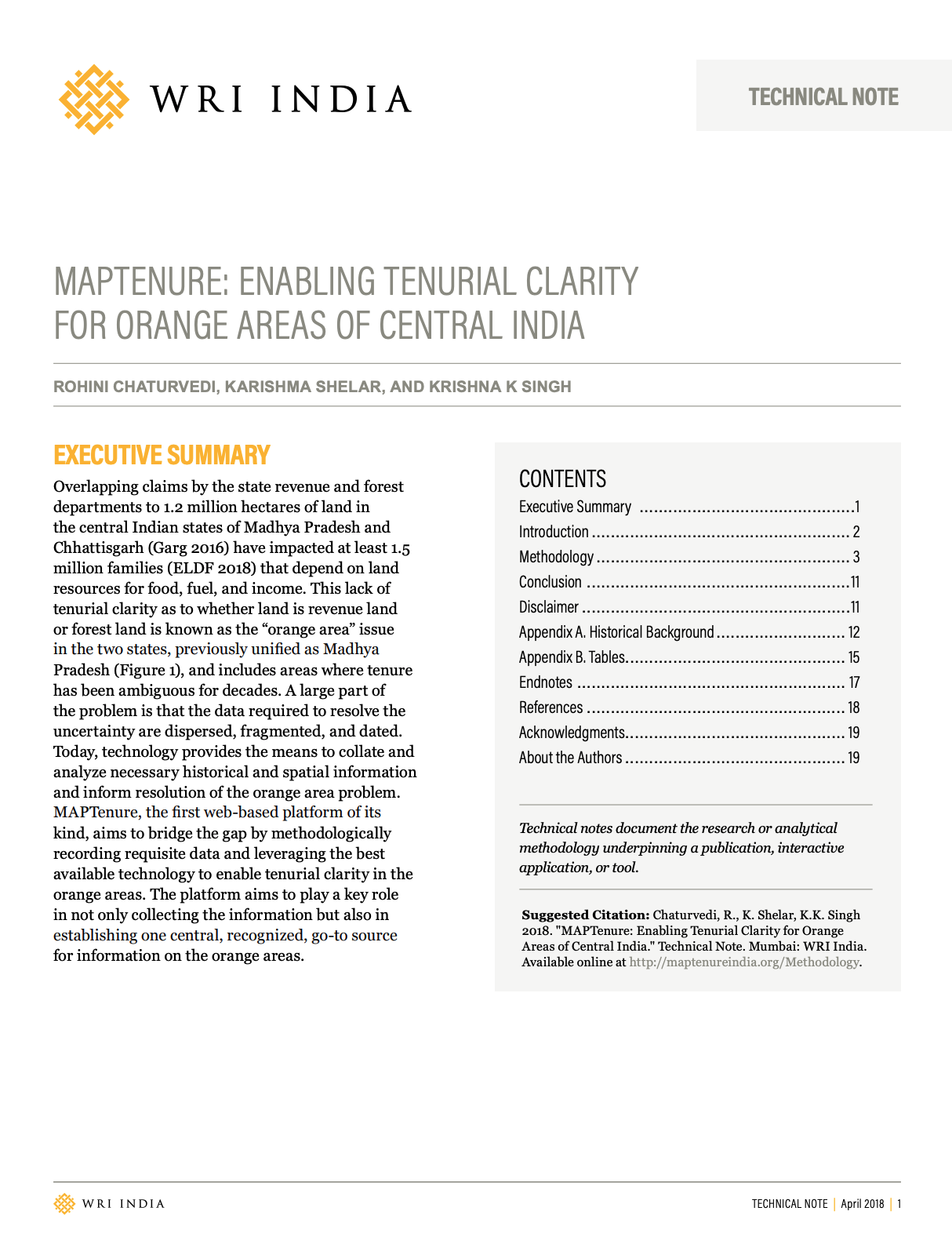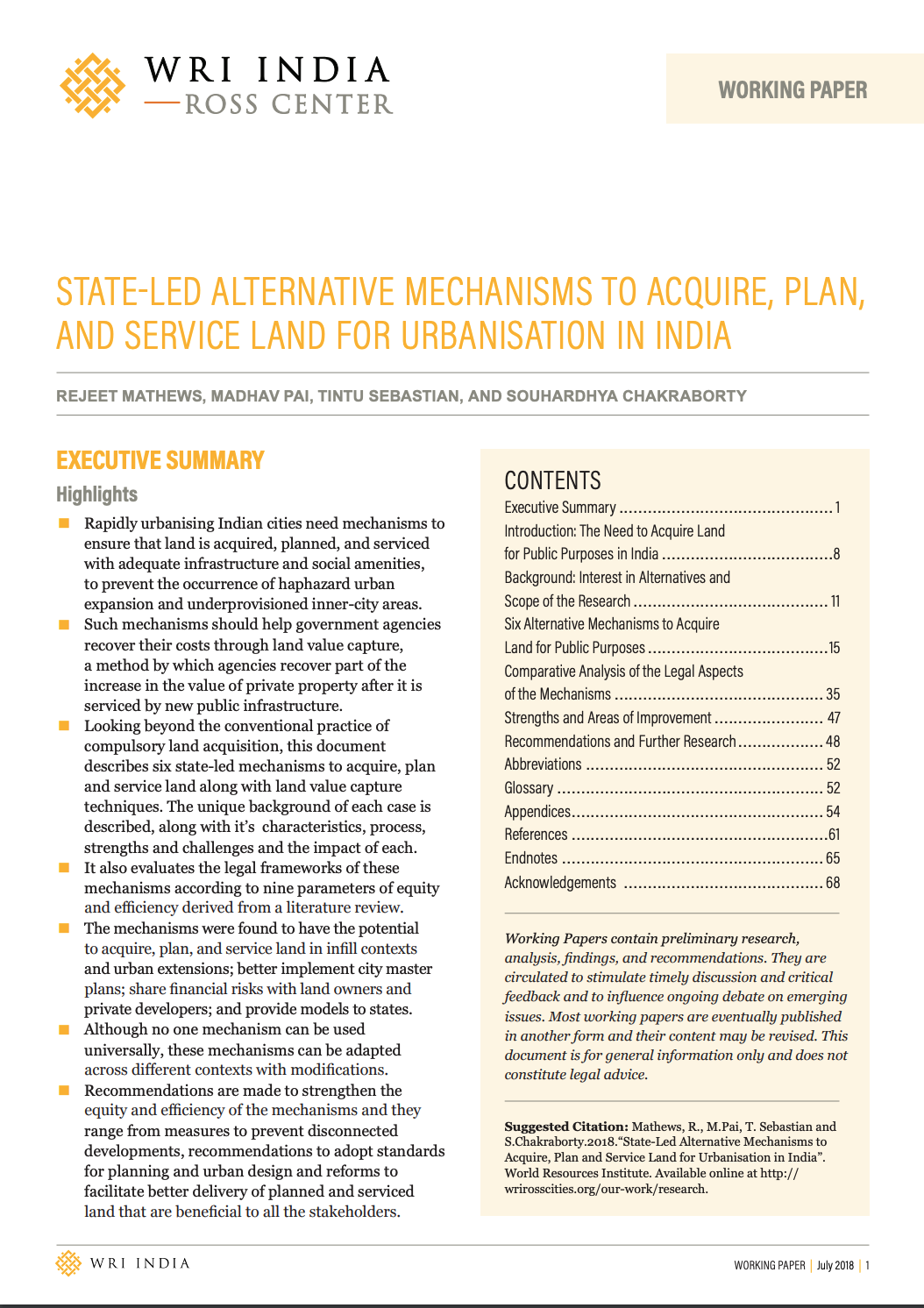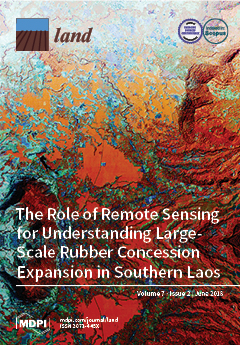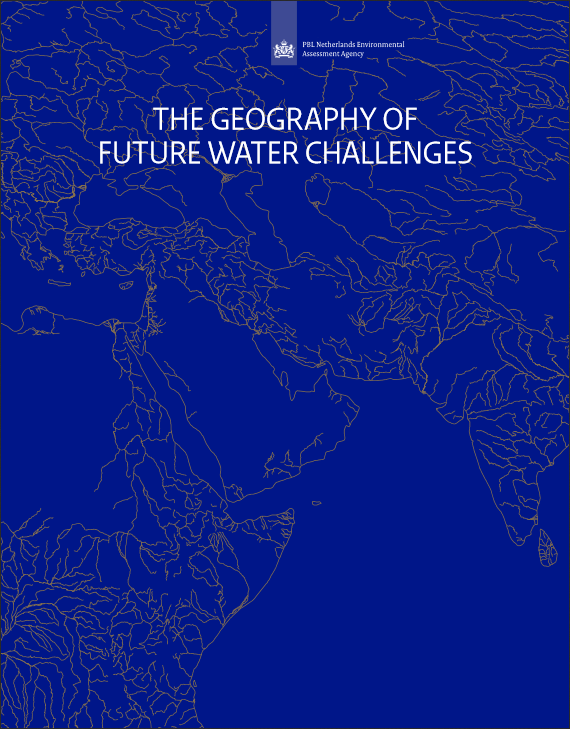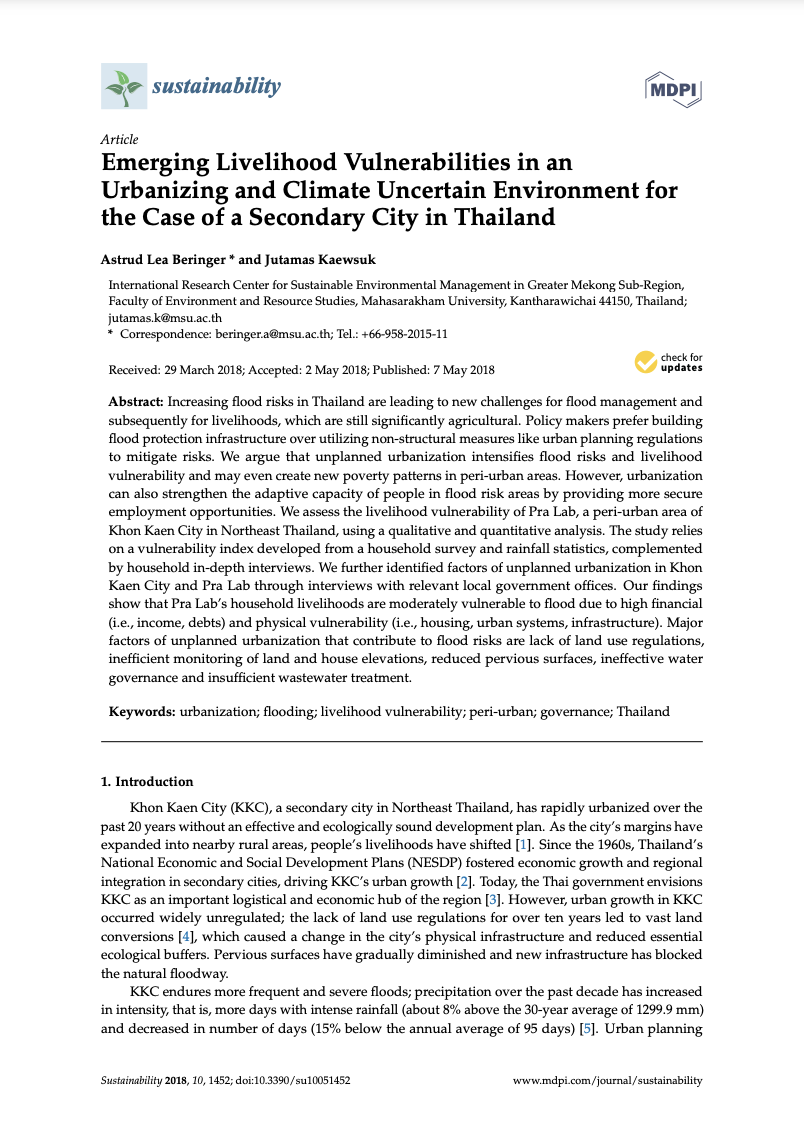Ahmedabad: Town Planning Schemes for Equitable Development — Glass Half Full or Half Empty?
This case study in the World Resources Report, “Towards a More Equal City,” examines transformative urban change in Ahmedabad, India, by analyzing the land pooling and readjustment mechanism called Town Planning Scheme (TPS). This paper reviews the evidence on whether the TPS mechanism has enabled transformative change with equitable outcomes in Ahmedabad City—and if so, how.

